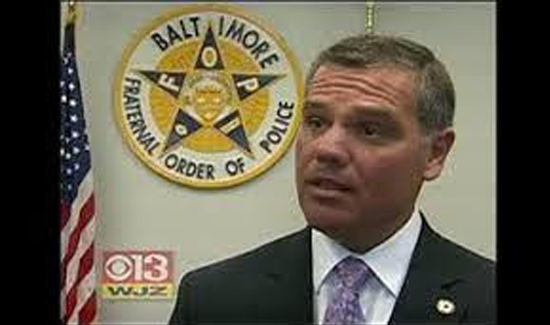Officers Get a Seat at the Table

Baltimore City FOP President Gene Ryan
As the Justice Department weighed its strategy for responding to the crisis that engulfed the Baltimore Police Department earlier this year, top police union officials found themselves in a most unlikely place: a conference table in the Justice Department’s Civil Rights Division, talking with the very people who would shape the federal government’s plan.
According to an in-depth report in USA Today, rarely in the past six years, when more than 20 local police agencies have drawn the department’s scrutiny for excessive force and discrimination, have union officials—traditional adversaries in federal civil rights inquiries — been included in such a way. Not even during the civil unrest in Ferguson, Mo., that immediately followed the police shooting of an unarmed black teenager.
“We never got a whiff over there,” said Jim Pasco, executive director of the Fraternal Order of Police, the nation’s largest police union.
The meeting — which included the police union’s national president, Chuck Canterbury, Maryland Fraternal Order of Police president Vince Canales, Baltimore Fraternal Order of Police president Gene Ryan, and Pasco — signals the emergence of a new relationship between federal authorities seeking to restore public trust in local law enforcement and union leaders who have closely guarded the rights of rank-and-file officers.
Much of the change, analysts say, represents a recognition that labor’s involvement is key to the success of federal reform efforts undertaken by the new leadership at Justice’s Civil Rights Division, which is increasingly exerting its authority in troubled communities across the country.
“If the Department of Justice wants to see real change, it has to involve the unions, too,” University of Pittsburgh law professor David Harris said. “If they don’t involve the unions, at the very least, (any) agreement created may not be as good. At worst, the unions may feel no involvement or obligation and may work to undermine the agreement’s success.”
Vanita Gupta, named last fall as acting chief of the Civil Rights Division, said that unions were among the first groups she sought out after taking office.
The start of the former ACLU lawyer’s tenure — in the wake of continuing unrest in Ferguson — coincided with perhaps one of the most volatile periods in police-community relations in recent history.
“Coming in after Ferguson, there is a much greater focus on the part of everyone,” Gupta said. “Unions are looking at these issues, too, because lack of trust has real implications for (officer) safety on the streets. “These groups require engagement.”














